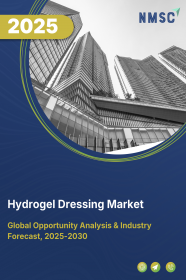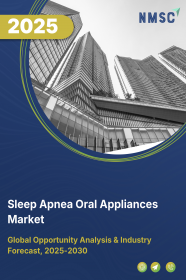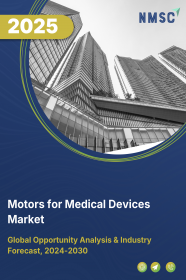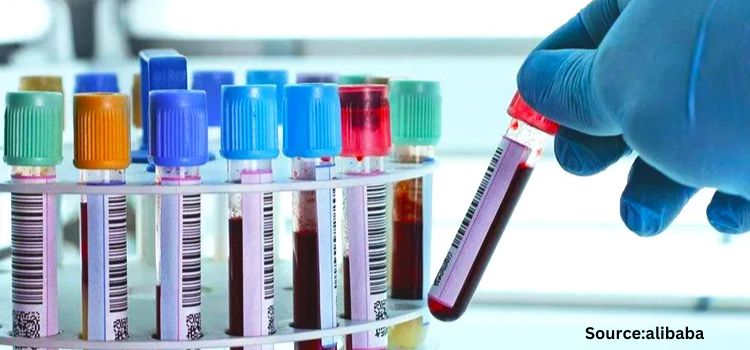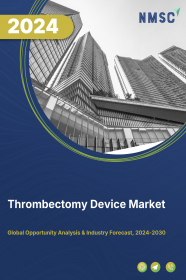
Thrombectomy Device Market by Product Type (Guide Catheters, Stent-Retrievers, Microcatheters, Aspiration Catheters, and Aspiration Pump Systems), by Applications (Acute Stroke, Pulmonary Embolism (PE), Deep Vein Thrombosis (DVT) and Venous Thromboembolism (VTE)), and by End-Users (Hospitals, Specialty Clinics, and Ambulatory Care Centers)– Global Opportunity Analysis and Industry Forecast 2024-2030
Thrombectomy Device Market Overview
The global Thrombectomy Device Market size was valued at USD 1.62 billion in 2023 and is predicted to reach USD 2.63 billion by 2030 with a CAGR of 7.1% from 2024-2030.
The thrombectomy device market also known as embolectomy market includes specialized medical instruments designed to remove blood clots from blood vessels, particularly in the context of acute ischemic stroke interventions. These devices employ techniques such as aspiration and mechanical retrieval to restore normal blood flow that is crucial for minimizing tissue damage.
Embolectomy is primarily used in neurovascular procedures and also applied in peripheral vascular and cardiac interventions, addressing clots in various circulatory areas. Its importance lies in improving patient outcomes by rapidly restoring blood flow, thus reducing the risk of long-term disabilities and mortality associated with strokes. The increasing focus on timely and effective treatment within healthcare systems, highlights the vital role of the market in enhancing patient care and outcomes across the medical landscape.
Market Dynamics and Trends
The increasing adoption of initiatives by regulatory bodies to expand healthcare services drives the establishment and enhancement of stroke centers and neurovascular departments leading to higher adoption rates of thrombectomy procedures.
For example, in April 2024, the World Bank Group, aimed to expand health services to 1.5 billion people by 2030, highlighting a global commitment to enhance healthcare accessibility. Thus, such initiatives significantly contribute to the advancement and accessibility of mechanical thrombectomy devices, enhancing patient care and improving recovery outcomes for stroke patients worldwide.
Moreover, the rising incidence of stroke compels the healthcare sector to adopt and improve treatment options, including thrombectomy procedures. This increases utilization of thrombectomy devices that drives innovation and growth within the market to better address the urgent need for effective stroke interventions.
According to data published by the World Stroke Organization in 2022, stroke incidence recorded a 70% increase from 1990 to 2019, highlighting the critical need for advanced treatment solutions to manage this growing health crisis. Therefore, this alarming rise in stroke incidence emphasizes the need for enhanced embolectomy devices and impactful solutions.
Also, the growing aging population globally increases demand for thrombectomy devices as elderly individuals are at a higher risk for strokes and other cardiovascular diseases.
According to World Population Prospects 2022, the percentage of global population aged 65 accounted to 10% in 2022 and is expected to rise 16% in 2050, reflecting a 60% increase within a span of 28 years. Consequently, the demand for embolectomy devices escalates, prompting innovation and investment in the market to address the needs of the aging population.
However, regulatory challenges associated with the approval of thrombectomy devices by government agencies including Food and Drug Administration (FDA), hinders the thrombectomy device market expansion.
On the contrary, adoption of robotic thrombectomy device is expected to create ample growth opportunity for the market in future. For instance, in May 2024, Rapid Medical performed the world’s first robotic embolectomy procedures using its innovative device, the Tigertriever. This endovascular embolectomy device autonomously adapts to a patient's anatomy, enhancing precision in stroke treatment.
Therefore, such innovative solutions signify a promising future opportunity in harnessing advanced technologies within healthcare, paving the way for continued advancements in thrombectomy procedures.
Market Segmentations and Scope of the Study
The thrombectomy device market report is segmented on the basis of product type, applications, end-users and region. On the basis of product type, the market is segmented into guide catheters, stent-retrievers, microcatheters, aspiration catheters, and aspiration pump systems. On the basis of applications, the market is classified into acute stroke, pulmonary embolism (PE), deep vein thrombosis (DVT) and venous thromboembolism (VTE). On the basis of end-user, the market is divided into hospitals, specialty clinics, and ambulatory care centers. The regional breakdown includes regions such as North America, Europe, Asia-Pacific, and the Rest of the World (RoW).
Geographical Analysis
North-America dominates the thrombectomy device market share and is expected to continue its dominance during the forecast period. This is attributed to the increasing healthcare expenditure by government organizations in the U.S. that drives healthcare providers to seek more efficient, cost-effective solutions accelerating the adoption of embolectomy devices.
According to the Organization for Economic Co-operation and Development (OECD), per capita health spending of the U.S. rose from USD 12,196.97 in 2021 to USD 12,555.26 in 2022, reflecting a 3% increase in one year. Therefore, the rise in healthcare expenditure boosts investment in advanced thrombectomy solutions that enhance healthcare providers to improve efficiency and improve patient outcome, fueling the market growth.
Moreover, the presence of key market players such as Retriever Medical, Inc. and Boston Scientific Corporation drives the demand of thrombectomy devices as it fosters innovation, competition and availability of advanced treatment options.
For instance, in May 2024, Retriever Medical, a Las Vegas-based startup raised USD 10 million in a Series A funding to advance its thrombectomy system that integrates dual-basket, drug-eluting catheters with aspiration techniques. Subsequently, this kind of initiative undertaken by regional players propels the market growth in the region by improving the safety and efficacy of thrombectomy interventions.
On the other hand, Asia-Pacific is the fastest growing region in embolectomy device market demand driven by the rising aging population that fuels demand for advanced thrombectomy procedures as older patients are at higher risk of ischemic strokes.
According to the latest report of the World Economic Forum, Japan leads the world with the highest proportion of elderly individuals with approximately 36.23 million individuals or nearly a third of the population being over the age of 65. This demographic trend highlights the need for effective stroke interventions, positioning the market for significant expansion in the region.
Also, increasing incidence of stroke cases in the region drives the healthcare systems to adopt advanced thrombectomy procedures to improve the patient outcomes and reduce mortality rate.
According to data from the National Institute of Health in 2022, the incidence of stroke in India ranged between 105 and 152 cases per 100,000 people annually in 2022. Consequently, this highlights the critical role of thrombectomy procedures in addressing the growing stroke burden in the region.
Competitive Landscape
Various key market players operating in the thrombectomy device industry are Medtronic Plc, Boston Scientific Corporation, Terumo Medical Corporation, Teleflex Incorporated, AngioDynamics, Inc., Penumbra, Inc., Johnson & Jhonson MedTech, Argon Medical Devices, Inc., Phenox GmbH, Edwards Lifesciences Corporation, and others. These market players continue to adopt various market development strategies including product launches to maintain their dominance in the market.
For instance, September 2024, CERENOVUS, Inc., part of Johnson & Johnson MedTech launched EMBOGUARD a balloon guide catheter to be used in endovascular procedures for patients with acute ischemic stroke. Thus, the launch of such devices enhances procedural efficiency and patient outcomes in stroke treatment.
Furthermore, in February 2023, Phonex Inc. a global provider in the neurovascular field developed PRESET thrombectomy device that received FDA clearance to treat acute ischemic stroke. Therefore, development of this kind of devices ensures efficacy in clot removal procedures and supports growth of the market.
Also, in October 2022, Medtronic Plc, launched Medtronic Neurovascular Co-Lab Platform to accelerate innovation in stroke care and treatment. This initiative is positioned to significantly foster advancements in thrombectomy devices, enhancing patient outcomes.
Key Benefits
-
The report provides quantitative analysis and estimations of the market from 2024 to 2030, which assists in identifying the prevailing market opportunities.
-
The study comprises a deep-dive analysis of the current and future thrombectomy device market trends to depict prevalent investment pockets in the market.
-
Information related to key drivers, restraints, and opportunities and their impact on the thrombectomy device trend is provided in the report.
-
Competitive analysis of the players, along with their market share is provided in the report.
-
SWOT analysis and Porters Five Forces model is elaborated in the study.
-
Value chain analysis in the market study provides a clear picture of roles of stakeholders
Thrombectomy Device Market Key Segments
By Product Type
-
Guide Catheters
-
Stent-Retrievers
-
Microcatheters
-
Aspiration Catheters
-
Aspiration Pump Systems
By Applications
-
Acute Stroke
-
Pulmonary Embolism (PE)
-
Deep Vein Thrombosis (DVT)
-
Venous Thromboembolism (VTE)
By End-Users
-
Hospitals
-
Specialty Clinics
-
Ambulatory Care Centers
By Region
-
North America
-
The U.S.
-
Canada
-
Mexico
-
-
Europe
-
The UK
-
Germany
-
France
-
Italy
-
Spain
-
Denmark
-
Netherlands
-
Finland
-
Sweden
-
Norway
-
Russia
-
Rest of Europe
-
-
Asia-Pacific
-
China
-
Japan
-
India
-
South Korea
-
Australia
-
Indonesia
-
Singapore
-
Taiwan
-
Thailand
-
Rest of Asia-Pacific
-
-
RoW
-
Latin America
-
Middle East
-
Africa
-
Key Players
-
Medtronic Plc
-
Boston Scientific Corporation
-
Terumo Medical Corporation
-
Teleflex Incorporated
-
AngioDynamics, Inc.
-
Penumbra, Inc.
-
Johnson & Jhonson MedTech
-
Argon Medical Devices, Inc.
-
Phenox GmbH
-
Edwards Lifesciences Corporation
REPORT SCOPE AND SEGMENTATION:
|
Parameters |
Details |
|
Market Size in 2023 |
USD 1.62 Billion |
|
Revenue Forecast in 2030 |
USD 2.63 Billion |
|
Growth Rate |
CAGR of 7.1% from 2024 to 2030 |
|
Analysis Period |
2023–2030 |
|
Base Year Considered |
2023 |
|
Forecast Period |
2024–2030 |
|
Market Size Estimation |
Billion (USD) |
|
Growth Factors |
|
|
Countries Covered |
28 |
|
Companies Profiled |
10 |
|
Market Share |
Available for 10 companies |
|
Customization Scope |
Free customization (equivalent up to 80 working hours of analysts) after purchase. Addition or alteration to country, regional, and segment scope. |
|
Pricing and Purchase Options |
Avail customized purchase options to meet your exact research needs. |

















 Speak to Our Analyst
Speak to Our Analyst



